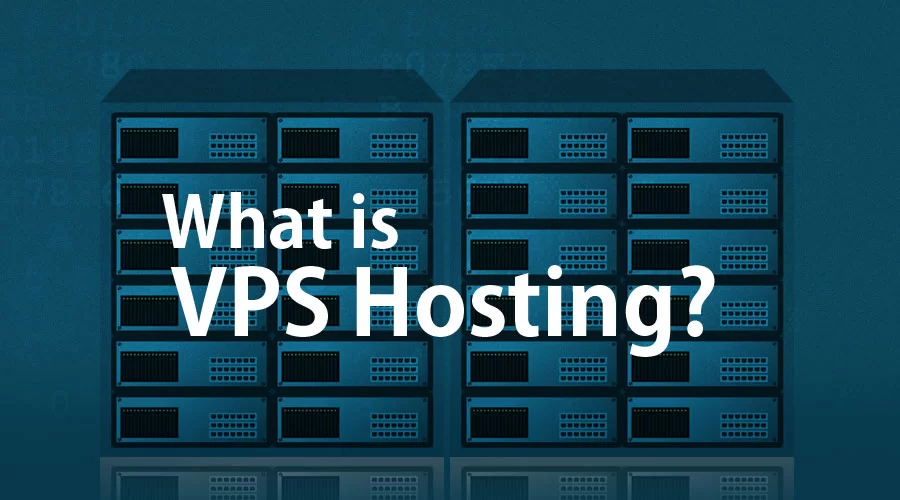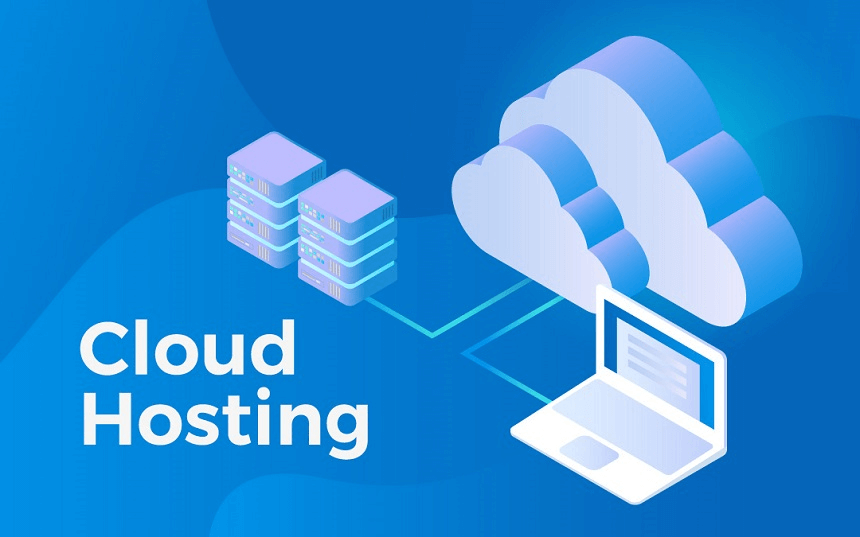Table of Contents
What is Website Hosting?
Website hosting is a service that allows people and organizations to make their websites accessible on the internet. Basically, it involves storing and serving website files and data on a server connected to the internet. This enables users from anywhere in the world to access and view the website easily.
When a website is created, it consists of various files, such as HTML, CSS, Javascript, images, videos, and other media. These files need to be stored on a server that is always connected to the internet and has the necessary infrastructure to handle website traffic.
What Types Of Website Hosting Exists?
There are numerous website hosting companies, which specialize in connecting website to the world wide net. They offer the infrastructure and technology required to store website files and data on servers connected to the internet. These companies ensure that websites are available and can be accessed by users from anywhere in the world.
In addition to providing server space, hosting companies often offer features such as domain registration, email hosting, database management, and website builders. They may also provide technical support and maintenance services to ensure the smooth functioning of websites.
When selecting a hosting company, factors to consider include reliability, speed, security, customer support, pricing, and scalability. Each hosting company has its own unique features and strengths, allowing website owners to choose the one that best fits their specific requirements.
What Types Of Website Hosting Exists?
- Shared Hosting: Shared hosting is a cost-effective option where multiple websites are hosted on a single server, sharing its resources. It is suitable for small to medium-sized websites with moderate traffic, providing an affordable hosting solution.
- Virtual Private Server (VPS) Hosting: VPS hosting involves dividing a physical server into multiple virtual servers, each with dedicated resources. This type of hosting offers better performance and customization options compared to shared hosting, making it ideal for websites that require more control and scalability.
- Dedicated Hosting: With dedicated hosting, you have an entire physical server exclusively for your website. It provides maximum control, customization, and performance, making it suitable for large websites or those with high traffic volumes that require robust resources.
- Cloud Hosting: Cloud hosting utilizes a network of interconnected servers to distribute website data across multiple machines. It offers scalability and reliability, allowing resources to be scaled up or down based on demand. Cloud hosting is suitable for websites with varying traffic levels or those that require high availability.
- Website Builder Hosting: Website builder hosting includes an intuitive website builder tool that allows users to create and customize websites without the need for coding knowledge. It offers pre-designed templates, drag-and-drop functionality, and various customization options, making it ideal for individuals or small businesses looking to quickly build and launch their websites.
- WordPress Hosting: This type of hosting is specifically tailored for WordPress websites. It includes optimized servers, automatic updates, enhanced security measures, and specialized support to ensure smooth WordPress performance.
- Colocation Hosting: Colocation hosting involves placing your own server hardware in a data center facility. The hosting provider provides the necessary infrastructure, power, cooling, and security, while you maintain full control over the server hardware and software configuration.
Shared Hosting
Shared website hosting is a popular and cost-effective hosting solution that allows multiple websites to reside on a single server. In this setup, resources such as CPU, memory, and disk space are shared among the websites hosted on that server. Shared website hosting is an ideal choice for individuals, small businesses, and startups who are starting their online journey and have relatively low traffic and resource requirements.

One of the primary advantages of shared website hosting is its affordability. Since the server resources are shared among multiple users, the cost is divided, making it an economical option for hosting websites. Shared hosting also provides a user-friendly interface, making it easy for beginners to set up and manage their websites without technical expertise. Hosting providers often offer pre-installed website builders, content management systems, and other tools, simplifying the website development process. Additionally, shared hosting often includes features such as automated backups and regular server maintenance, ensuring the security and stability of your website.
However, there are a few considerations to keep in mind when opting for shared hosting. Since resources are shared, the performance of your website can be affected by the traffic and resource usage of other websites on the same server. If a neighboring website experiences a sudden surge in traffic, it may lead to slower loading times for your own website. Additionally, shared hosting may have limitations on customization options and server configurations compared to other hosting types.
Pros
- Cost-effective and budget-friendly option
- User-friendly interface and easy setup
- Pre-installed website builders and tools
- Suitable for individuals and small businesses with low traffic
Cons
- Performance may be affected by neighboring websites
- Limited customization options and server configurations
- Shared server resources may lead to slower loading times
- Not suitable for high-traffic or resource-intensive websites
Dedicated Server Hosting
Dedicated website hosting is a robust hosting solution that offers an entire physical server exclusively dedicated to a single website or client. With dedicated hosting, all server resources, including CPU, RAM, storage, and bandwidth, are solely allocated to your website, providing optimal performance, reliability, and control. You have the freedom to choose the hardware specifications of the server, such as CPU, RAM, and storage capacity, based on your website’s requirements. This scalability allows you to easily accommodate growth, handle increasing traffic, and adapt to changing needs without the hassle of migrating to a different hosting environment.

In dedicated website hosting, you have complete autonomy over the server environment. You can customize server configurations, install specific software and applications, and have full root access to the server. This level of control enables you to tailor the hosting environment precisely to your website’s requirements and preferences. One of the key advantages of dedicated hosting is its unparalleled performance. Since you have exclusive access to the server’s resources, your website operates at optimal speed and can handle high volumes of traffic without performance degradation. This makes dedicated hosting ideal for resource-intensive websites, large e-commerce platforms, or websites with heavy traffic demands.
Enhanced security is another significant benefit of dedicated hosting. As the only user on the server, you have a higher level of isolation and reduced vulnerability to potential security breaches. You can implement robust security measures, firewall configurations, and regularly update server software to ensure the utmost protection for your website and data.
Dedicated hosting is an excellent choice for websites that demand maximum performance, customization options, and security. However, it is important to consider your website’s needs, budget, and technical capabilities before opting for dedicated hosting.
Pros
- Superior performance and scalability
- Complete control over server configurations and software
- Enhanced security and isolation
- Ideal for resource-intensive websites and high-traffic platforms
Cons
- Higher cost compared to other hosting types
- Requires technical expertise for server management
- User is responsible for server maintenance and updates
Virtual Private Server (VPS) Hosting
VPS (Virtual Private Server) website hosting is a hosting solution that offers a middle ground between shared hosting and dedicated hosting. In VPS hosting, a physical server is divided into multiple virtual servers, each operating independently and providing dedicated resources to individual websites. This arrangement allows for enhanced performance, scalability, and control compared to shared hosting.

With VPS hosting, you have guaranteed resources allocated to your website, ensuring consistent performance even during peak traffic periods. The isolation provided by virtual servers also enhances security, as potential vulnerabilities in other websites on the same physical server do not impact your site. Additionally, VPS hosting offers greater customization options, allowing you to configure server settings and install software tailored to your specific needs. Moreover, VPS hosting provides a higher level of control over your hosting environment. You have the freedom to choose the operating system, install custom applications, and make configurations based on your requirements.
Another advantage of VPS hosting is scalability. As your website grows and demands more resources, you can easily scale up your VPS plan to accommodate the increased traffic and data requirements. This flexibility ensures that your website can handle high volumes of visitors without sacrificing performance. When considering VPS hosting, it is essential to assess your website’s requirements, budget, and technical expertise to ensure it aligns with your needs and goals.
Pros
- Enhanced performance, stability, and reliability compared to shared hosting
- Dedicated resources and isolated environment for better security
- Greater control and customization options
- Scalability to accommodate growing website needs
Cons
- Higher cost compared to shared hosting
- Requires more technical knowledge for server management
- User is responsible for server maintenance and security
Cloud Hosting
Cloud hosting is a modern and scalable hosting solution that utilizes multiple interconnected servers to distribute resources and handle website data across a network of virtual machines. Unlike traditional hosting methods that rely on a single physical server, cloud hosting offers flexibility, reliability, and scalability by leveraging the power of cloud computing.

With cloud hosting, your website is not tied to a specific server. Instead, it operates on a virtual infrastructure that draws resources from a pool of interconnected servers. This architecture ensures high availability and eliminates the risk of downtime caused by hardware failures or maintenance activities. Additionally, cloud hosting allows for seamless resource scaling, enabling you to adapt to fluctuating traffic demands and handle sudden spikes in website visitors.
One of the key advantages of cloud hosting is its flexibility. You have the freedom to customize your resource allocation, including CPU, RAM, storage, and bandwidth, based on your specific needs. This scalability ensures that you only pay for the resources you actually use, making cloud hosting a cost-effective option for websites with variable traffic patterns.
Moreover, cloud hosting offers robust security measures. Data is distributed across multiple servers, reducing the risk of data loss or unauthorized access. Cloud providers often implement advanced security protocols, such as data encryption, firewalls, and regular backups, to ensure the protection and integrity of your website’s data.
Pros
- High scalability and flexibility
- Improved reliability and uptime
- Pay-as-you-go pricing model
- Robust security measures and data protection
Cons
- Requires technical expertise for setup and management
- Cost can vary based on resource usage
- Reliance on internet connectivity for website access
Website Builder Hosting
Website builder hosting is a hosting solution specifically designed for users who want to build and manage their websites without any technical expertise. It combines hosting services with an intuitive website builder tool that allows users to create professional-looking websites with ease. Website builder hosting eliminates the need for coding or design skills, making it accessible to individuals, small businesses, and entrepreneurs looking to establish an online presence quickly.

With website builder hosting, you can choose from a range of templates and drag-and-drop elements to customize your website’s layout, design, and content. The website builder usually offers a user-friendly interface with intuitive controls, allowing you to add pages, create menus, insert images, and modify text without any coding knowledge. Moreover, One of the primary advantages of website builder hosting is its simplicity and convenience. The all-in-one package includes both hosting services and a user-friendly website builder, eliminating the need to purchase hosting separately or install third-party website building software. This integrated approach streamlines the website creation process, allowing you to focus on content creation and design.
Website builder hosting also provides hosting infrastructure tailored to the requirements of the website builder tool. This ensures compatibility, optimized performance, and seamless integration between the hosting environment and the website builder platform. Additionally, most website builder hosting services offer reliable hosting infrastructure, regular backups, and technical support to ensure the smooth operation of your website.
Pros
- User-friendly and intuitive website building tools
- Integrated hosting services for convenience
- Wide range of customizable templates and designs
- Technical support and reliable hosting infrastructure
Cons
- Limited customization options compared to custom-coded websites
- May have restrictions on advanced features and functionalities
- Dependency on the website builder platform’s ecosystem
- Wix
- Weebly
- Squarespace
- Duda
- Site123
- WordPress.com
- Webflow
- Jimbdo
- Shopify
Want to read more about website builders and their design tools?
Wordpess Hosting
Because of its popularity, WordPress’s design tool is target of many hosting services. WordPress hosting is a specialized hosting solution designed specifically for websites built on the WordPress content management system (CMS). WordPress hosting optimizes the hosting environment to ensure seamless performance, security, and compatibility for WordPress websites. It offers a range of features and tools that cater to the unique requirements of WordPress, making it a popular choice for individuals, bloggers, small businesses, and even large enterprises.

WordPress hosting typically comes preconfigured with optimized server settings and caching mechanisms to enhance the speed and performance of WordPress websites. These hosting platforms often offer one-click WordPress installations, allowing users to set up their websites quickly and easily. Additionally, WordPress hosting providers offer automatic WordPress updates, ensuring that your website is always running on the latest version of the CMS for enhanced security and functionality.
One of the key advantages of WordPress hosting is its focus on security. WordPress hosting platforms implement robust security measures, such as malware scanning, firewalls, and regular backups, to protect your website from potential threats. They also offer specialized support teams with expertise in WordPress, who can assist with any WordPress-specific issues or inquiries.
Pros
- Optimized server configurations for WordPress websites
- One-click installations and easy setup process
- Enhanced security measures and specialized support
- Automatic WordPress updates for improved functionality
Cons
- Some hosting platforms may have limitations on customization compared to self-hosted WordPress installations
- Cost can vary depending on the hosting provider and package
- Potential reliance on the hosting platform’s ecosystem and limitations on plugin choices
Colocation Hosting
Colocation hosting, also known as colo hosting, is a type of hosting service that allows businesses to place their own servers and IT infrastructure in a data center facility provided by a third-party provider. Instead of renting or purchasing server space from the hosting company, businesses own and maintain their own hardware, while the data center provides the necessary infrastructure, including power, cooling, security, and network connectivity.

Colocation hosting offers several benefits to businesses. Firstly, it provides a secure and controlled environment for servers, with advanced physical security measures, such as biometric access controls, surveillance systems, and fire suppression systems. Data centers are designed to offer high levels of redundancy and reliability, including backup power supplies and multiple internet connections, ensuring minimal downtime.
Secondly, colocation hosting provides businesses with access to high-speed internet connections and robust network infrastructure. This enables faster data transfer rates, improved website performance, and the ability to handle high volumes of traffic. The data center’s network infrastructure is designed to provide low-latency connections and high bandwidth capacity.
Lastly, colocation hosting offers businesses the advantage of cost savings. Instead of investing in building and maintaining their own data center facility, businesses can leverage the economies of scale provided by a colocation provider. This eliminates the need for upfront infrastructure costs, such as power, cooling, and network equipment, as well as ongoing maintenance expenses.
Pros
- Enhanced security and physical protection for servers
- Access to robust network infrastructure and high-speed internet connections
- Cost savings compared to building and maintaining an in-house data center
Cons
- Requires upfront investment in server hardware and equipment
- Businesses are responsible for managing and maintaining their own servers
- Limited scalability compared to cloud hosting solutions